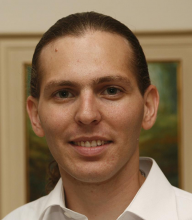
Goren Gordon received his B.M.Sc, M.Sc. in physics and M.B.A. at Tel-Aviv University in Israel. His M.Sc. research on wave propagation and scattering was done with Prof. Heyman in the department of Electrical Engineering. His first Ph.D. was in Chemical Physics at the Weizmann Institute of Science, Israel. Gordon researched with Prof. Kurizki dynamical decoherence control of open quantum systems and quantum communication protocols. He also published and developed quantum computer games as an entertaining tool to teach quantum physics. His second Ph.D. was in Computational Neuroscience, also in the Weizmann Institute. Together with Prof. Ahissar he developed novel mathematical models of curiosity and exploration, compared them to animals' behavior and applied them to curious robots. Gordon completed his postdoctoral research in the Personal Robots Group in the Media Lab, MIT, under the supervision of Cynthia Breazeal. He investigated how curious robots can learn to be social by themselves, and how they can assist curious children to learn literacy skills.



